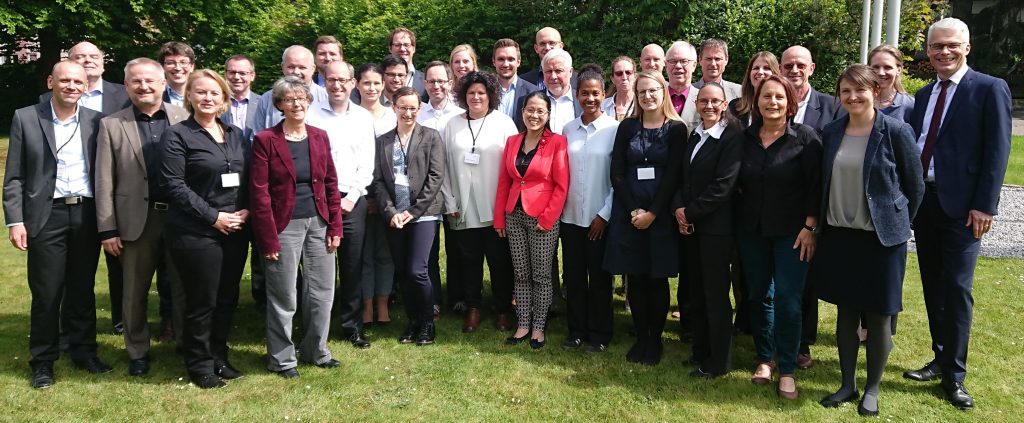

DGRV – the German Cooperative and Raiffeisen Confederation is the national apex organization and top-level auditing confederation of the cooperative sector in Germany.
Since more than 40 years, DGRV is engaged in international development cooperation. In more than 30 partner countries, DGRV provides consultancy and helps to develop cooperative systems and structures aiming at a sustainable development of the cooperative sector.
Cooperatives are a proven organisational and legal form for cooperation in various ways, from which the individual members as well as the entire committed community benefit.
Cooperatives and their members represent ethical values such as honesty, transparency, social responsibility and mutual solidarity. The principles of self-help, self-administration and self-responsibility as introduced by F.W. Raiffeisen are of crucial importance.
The entrepreneurial cooperative idea is being used more intensively by broad sections of the population worldwide and contributes to an improvement of the local living conditions.
As DGRV’s Department of International Relations, we are committed to realising this vision through consultancy and active cooperation with our partners.
We support our partners in the long-term development of their cooperative structures and institutions. For this, we rely on:
In doing so, we adapt our approach to the specific local conditions and needs.
We draw upon the resources of German and international donors.
In our projects, we focus on the principle of economic, social and ecological sustainability.
Today, DGRV maintains 14 project offices in Asia, Africa and Latin-America and employs more than 100 local and expatriate staff. The international projects are coordinated by currently 16 employees of the DGRV’s International Relations Department (AIB) situated at the DGRV headquarters in Bonn, Germany.
With its international projects, the AIB promotes the development of cooperatives, their federations and associated cooperative structures in selected partner countries. The regional programmes aim at providing disadvantaged population groups access to the financial and real market in order to counteract structural poverty. The Federal Ministry for Economic Cooperation and Development (BMZ) and the Federal Ministry of Food and Agriculture (BMEL) are the AIB’s main donors.
The AIB’s cooperative development work focuses on advising its project partners in particular cooperative organisations, ministries and development cooperation organisations at local, regional and national level. In doing so, the activities are based on the entrepreneurial cooperative principles, their adapted implementation and the multi-tier approach.

Employees and expatriate staff of the AIB, May 2019
The approach of DGRV, which we have been implementing in many countries with mainly the funding of the Federal Ministry for Economic Cooperation and Development (BMZ) and the Federal Ministry of Food and Agriculture (BMEL), aims at establishing long-term cooperative associations and affiliated institutions in partner countries. As a network organisation, the focus of DGRV is not put on the massive cooperative work at grass-roots level (particularly the identification and support of founding initiatives and advisory services regarding the establishment of primary cooperatives) but rather on the long-term establishment of sectoral, subsidiary institutions and their support regarding the provision of key services for the sector.
DGRV can and wants to contribute in particular through:
The comparative advantage of the approach of DGRV in development cooperation projects is that based on the already existing local cooperative enterprises and initiatives, superordinate structures, which are adapted to the social and cultural conditions as well as to the current requirements, are established which in turn then support the cooperative grass-roots structures.